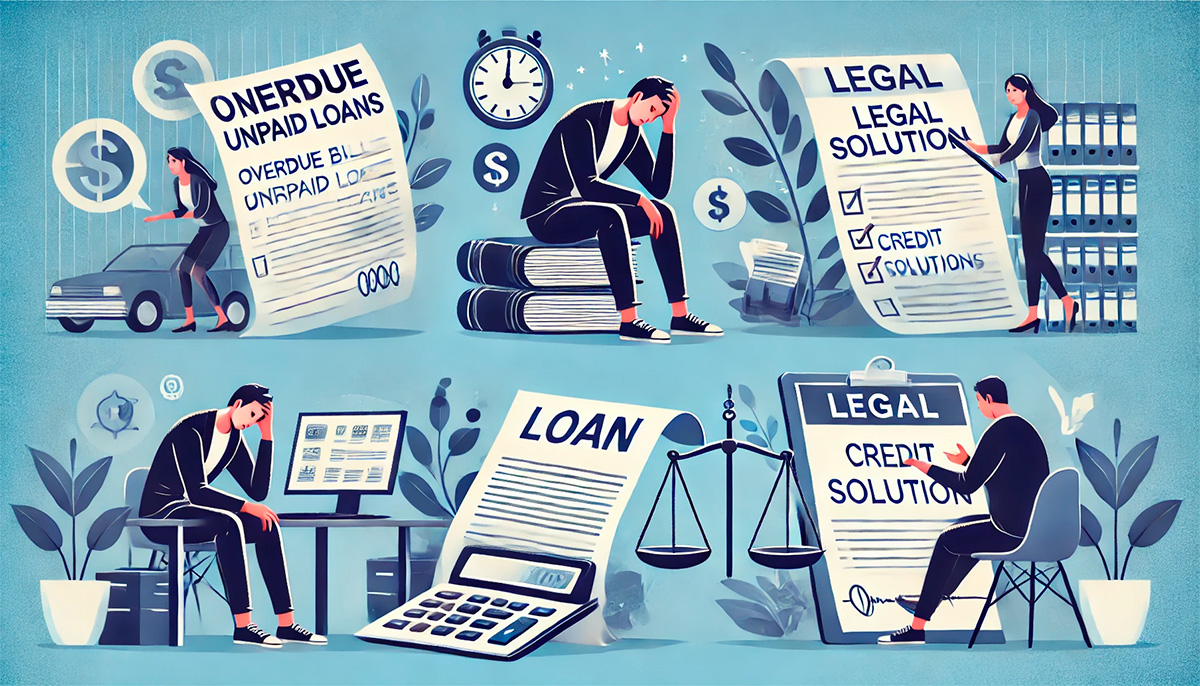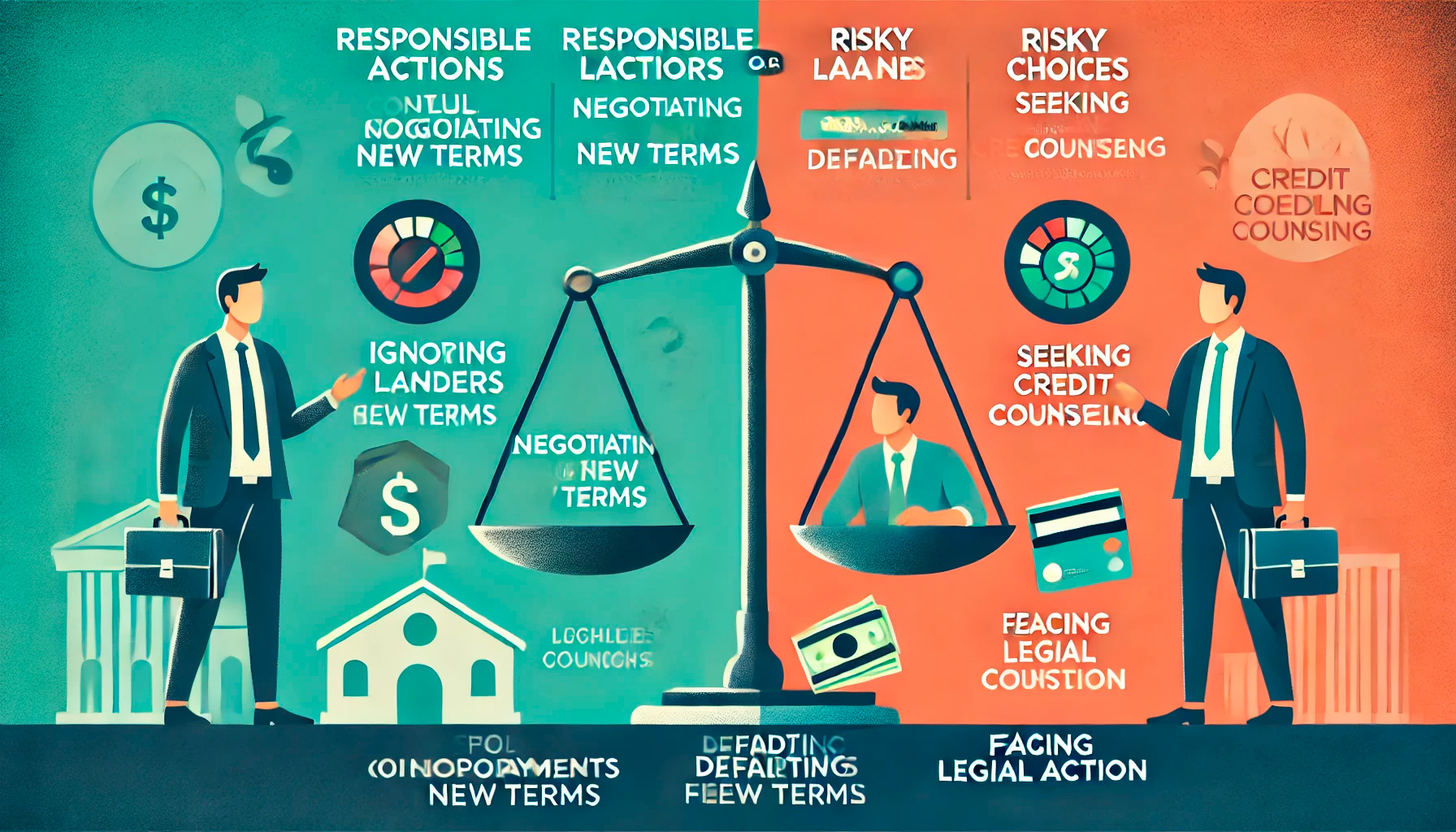Falling behind on loan payments can be a stressful and overwhelming experience. Whether it’s due to unexpected financial hardships, job loss, or other life circumstances, being unable to meet your loan obligations can have serious consequences. However, there are legal and practical steps you can take to address the situation and find a solution. This article explores what to do if you can’t pay your loan, offering actionable advice to help you navigate this challenging situation.
Assess Your Financial Situation
The first step in addressing unpaid loans is to assess your financial situation. Take a close look at your income, expenses, and debts to understand the full scope of the problem. Create a detailed budget to identify areas where you can cut back on spending or reallocate funds to prioritize loan payments. Understanding your financial position will help you determine the best course of action and communicate effectively with your lender.
If you have multiple loans, prioritize them based on interest rates, penalties, and consequences of non-payment. For example, secured loans, such as mortgages or car loans, should typically take precedence over unsecured loans, as defaulting on these could result in the loss of your home or vehicle.
Contact Your Lender
One of the most important steps you can take is to contact your lender as soon as you realize you may have trouble making payments. Lenders are often willing to work with borrowers who are proactive about their financial difficulties. Explain your situation honestly and provide any relevant documentation, such as proof of income loss or medical bills, to support your case.
Many lenders offer hardship programs or temporary relief options, such as payment deferrals, reduced interest rates, or extended loan terms. These programs can provide much-needed breathing room and help you avoid defaulting on your loan. Be sure to ask about any fees or long-term implications of these options before agreeing to them.
Explore Loan Modification Options
If your financial difficulties are long-term, you may want to explore loan modification options. A loan modification involves changing the terms of your loan to make payments more manageable. This could include lowering the interest rate, extending the loan term, or reducing the principal balance.
Loan modifications are more common with mortgages, but some lenders may offer similar options for other types of loans. Keep in mind that qualifying for a loan modification can be challenging, and the process may require extensive documentation and negotiation. However, it can be a viable solution for borrowers facing significant financial hardship.

Consider Refinancing or Consolidating Your Loan
Refinancing or consolidating your loan can be another effective way to manage unpaid debt. Refinancing involves replacing your existing loan with a new one that has better terms, such as a lower interest rate or longer repayment period. This can reduce your monthly payments and make them more affordable.
Debt consolidation, on the other hand, involves combining multiple loans into a single loan with a lower interest rate. This simplifies your payments and can save you money on interest over time. However, both refinancing and consolidation require a good credit score and stable income, so they may not be suitable for everyone.
Seek Credit Counseling
If you’re struggling to manage your debt, consider seeking help from a reputable credit counseling agency. Credit counselors can provide personalized advice and help you create a debt management plan (DMP). A DMP involves negotiating with your creditors to lower interest rates and consolidate your payments into a single monthly amount.
Credit counseling agencies are typically nonprofit organizations that offer free or low-cost services. Be sure to choose a certified and accredited agency to ensure you receive reliable and unbiased advice. Avoid agencies that charge high fees or make unrealistic promises, as these may be scams.
Understand the Consequences of Default
If you’re unable to make payments and don’t take action, your loan may go into default. The consequences of default vary depending on the type of loan and the lender’s policies. For secured loans, such as mortgages or auto loans, defaulting can result in foreclosure or repossession of the collateral. For unsecured loans, such as personal loans or credit card debt, the lender may take legal action to recover the debt.
Defaulting on a loan can also have long-term effects on your credit score, making it difficult to secure loans or credit in the future. Additionally, unpaid debts may be sent to collections, which can result in harassing phone calls and letters. Understanding these consequences can motivate you to take proactive steps to address the issue.
Explore Legal Protections and Bankruptcy Options
In some cases, legal protections may be available to help you manage unpaid loans. For example, the Servicemembers Civil Relief Act (SCRA) provides financial protections for active-duty military personnel, including reduced interest rates and protection from foreclosure. Similarly, some states have laws that protect borrowers from predatory lending practices or provide additional time to repay debts.
If your financial situation is dire and you’re unable to repay your debts, bankruptcy may be an option to consider. Bankruptcy can provide relief from overwhelming debt by discharging certain obligations or creating a repayment plan. However, it has serious long-term consequences, including a significant impact on your credit score and the potential loss of assets. Consult with a bankruptcy attorney to determine whether this is the right option for you.
Create a Long-Term Financial Plan
Once you’ve addressed your immediate financial challenges, it’s important to create a long-term plan to avoid similar problems in the future. This may include building an emergency fund, improving your credit score, and adopting healthier financial habits. Consider working with a financial advisor to develop a comprehensive plan that aligns with your goals and priorities.
Additionally, educate yourself about personal finance and debt management to make informed decisions. Understanding how loans, interest rates, and credit work can help you avoid pitfalls and make smarter financial choices in the future.
Conclusion: Take Action and Seek Help
Being unable to pay your loan can feel overwhelming, but there are legal and practical steps you can take to address the problem. By assessing your financial situation, contacting your lender, and exploring options such as loan modification, refinancing, or credit counseling, you can find a solution that works for you.
Remember, the key is to act quickly and seek help when needed. Ignoring the problem will only make it worse, while taking proactive steps can help you regain control of your finances and move toward a brighter financial future. Whether you’re facing a temporary setback or a long-term challenge, there are resources and strategies available to help you overcome it.



